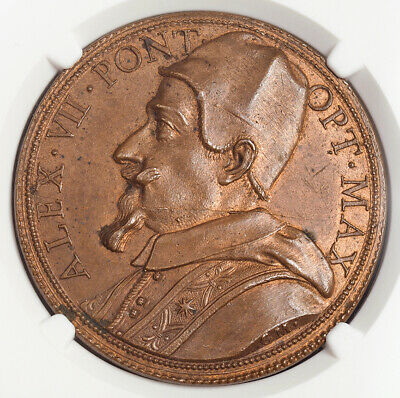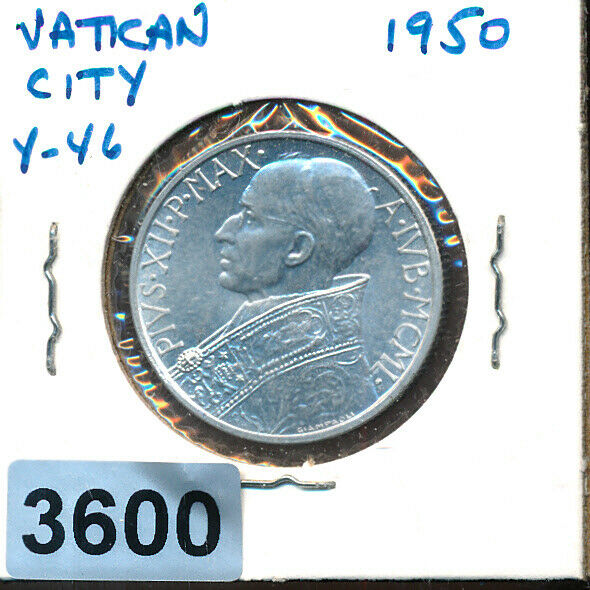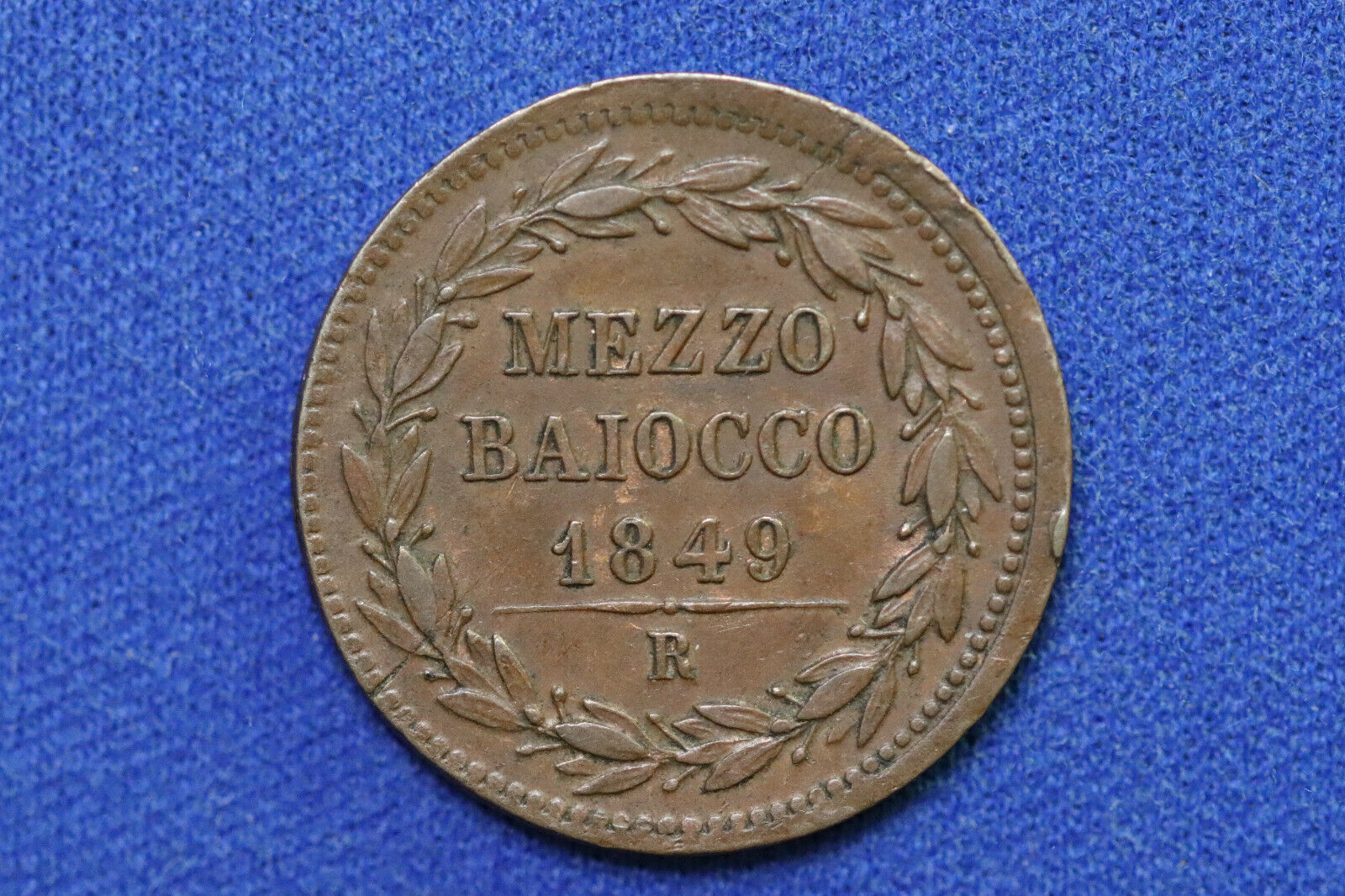-40%
1675, Vatican, Pope Alexander VII. Bronze "St. Peter`s Square" Medal. NGC MS-64!
$ 158.32
- Description
- Size Guide
Description
CoinWorldTV1675, Vatican, Pope Alexander VII. Bronze "St. Peter`s Square" Medal. NGC MS-64 RB!
Medalist: Gaspare Morone (G.M.)
Mint Year: not dated (probably 1675)
References. Linc. 1235, W & V Roma 82.
Condition:
Certified and graded by NGC as MS-62!
Denomination: Medal -
Alexander VII / St. Peter`s Square.
Diameter: 40.5mm
Weight: ca. 31gm
Material: Silver
Obverse:
Bust of Alexander VII, wearing camauro, mozzetta and stole. Medalist´s signature (G.M.) on arm truncation.
Legend: ALEX . VII . PONT . OPT . MAX
Reverse:
Birde-eye view St. Peter´s Square in Rome.
Legend: FVNDAMENTA EIVS IN MONTIBVS SANCTIS
Exergue: VATICANI TEMPLI AREA PORTCIBVS ORNATA
St. Peter's Square
(Italian: Piazza San Pietro, Latin: Forum Sancti Petri) is a large plaza located directly in front of St. Peter's Basilica in the Vatican City, the papal enclave inside Rome, directly west of the neighborhood (rione) of Borgo. Both the square and the basilica are named after Saint Peter, an apostle of Jesus considered by Catholics to be the first Pope. At the centre of the square is an ancient Egyptian obelisk, erected at the current site in 1586. Gian Lorenzo Bernini designed the square almost 100 years later, including the massive Doric colonnades, four columns deep, which embrace visitors in "the maternal arms of Mother Church".
A granite fountain constructed by Bernini in 1675
matches another fountain designed by Carlo Maderno in 1613.
Authenticity unconditionally guaranteed.
Bid with confidence!
Pope Alexander VII
(13 February 1599 – 22 May 1667), born
Fabio Chigi
, was head of the Catholic Church and ruler of the Papal States from 7 April 1655 to his death in 1667. He began his career as a vice-papal legate, and he held various diplomatic positions in the Holy See. He was ordained as a priest in 1634, and he became bishop of Nardo in 1635. He was later transferred in 1652, and he became bishop of Imola. Pope Innocent X made him secretary of state in 1651, and in 1652, he was appointed a cardinal. Early in his papacy, Alexander, who was seen as an anti-nepotist at the time of his election, lived simply; later, however, he gave jobs to his relatives, who eventually took over his administration. His administration worked to support the Jesuits. However, his administration's relations with France were strained due to his frictions with French diplomats.Alexander was interested in architecture and supported various urban projects in Rome. He also wrote poetry and patronized artists who expanded the decoration of churches. His theological writings included discussions of heliocentrism and the Immaculate Conception.
Only 1$ shipping for each additional item purchased!












